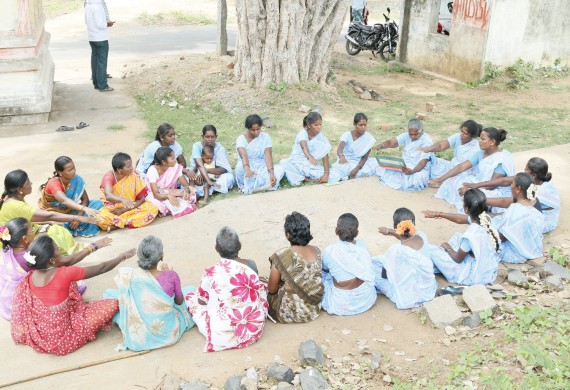
'Women Self-Help Organisations can be Important Contributors to GDP'
By: WE Staff | Friday, 1 July 2022
The National Rural Livelihood Mission (NRLM), which aims to increase each woman's yearly income in self-help groups (SHGs) to Rs 1 lakh by 2024, has already been given priority by the government, but it is also actively encouraging entrepreneurship and economies of scale among them. Not only that, but it also wants to support its efforts at handholding by making loans easier and facilitating access to markets rather than relying on a grant-based economy.
Addressing the third edition of the Indian Express Thinc session on Gender, titled “Women Collectives: Changemakers from the ground up,” Minister of Rural Development and Panchayati Raj Giriraj Singh, said, “My mission is to ensure that no rural woman, who wants to connect with NRLM, is left behind. I will also improve the turnover of 5.9 lakh crore women. If half of the country’s population improve their earnings, they will be significant contributors to the national GDP.”
In highlighting the progress accomplished by NRLM, Mr. Singh stated that as of 2014, the programme encompassed 2.35 lakh homes, had bank connections worth 80,000 crore, and had non-performing assets (NPAs) at a rate of 9.58 percent.
“Today, 8.35 crore women are connected to NRLM and there are 5.9 lakh crore bank linkages, while the NPAs have reduced to 2.5 per cent. No other sector today has such low NPAs and I am going to decrease it further to less than 1 per cent,” he stated.
The Minister stated that he wants to ensure that each woman receives an annual income of Rs. 1 lakh, or around Rs. 8,000 to 10,000 per month, envisioning a multi-sector role for SHGs.
“They are working in multiple sectors as Business Correspondents (BC), Bank Sakhis, Kisan Sakhis and Pashu Sakhis. Around 60-70 per cent of the women working in agriculture and animal husbandry should be able to diversify themselves and move towards millet cultivation and horticulture. These avenues will provide new forward linkages,” he added.
Singh emphasised how his Ministry was assisting women farmer producer enterprises and clusters as part of "Mission 1 lakh, 2024" by connecting them with e-commerce sites like Flipkart and Amazon and tying state marketplaces at the domestic level. In addition, the government would assist them with packaging, branding, and skill development.
The Minister described a multifaceted strategy and explained how women's SHGs in the rural may start a new green revolution by producing organic fertilisers. “A woman from Bakhri village in my constituency Begursarai, Bihar, has a two-acre land and got a good yield as a result and could sell her produce at higher prices. We are giving lakhs of rupees in subsidies for chemical fertilisers. That burden can be reduced by getting women involved in organic manure production,” said Singh, adding, “There is a new-found enthusiasm among women at the grassroots to improve their collective lot.”






